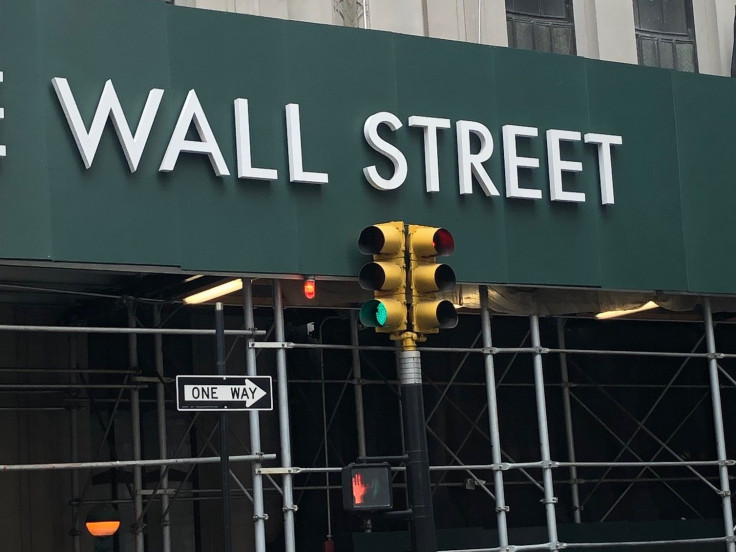Thursday's Stock Market Close: US Equities Rally Despite Jobless Claims Data, Nasdaq Now Up Year-To-Date

KEY POINTS
- More than 33 million Americans have lost their jobs in the past seven weeks
- The Bank of England kept its interest rate policy unchanged
- The central bank of Norway unexpectedly cut its interest rate to zero
U.S. stocks rose on Thursday as traders appeared to be more optimistic about the gradual reopening of the economy, shrugging off another huge jobless claims report.
The Dow Jones Industrial Average gained 211.25 points to 23,875.89, while the S&P 500 rose 32.77 points to 2,881.19 and the Nasdaq Composite Index jumped 125.27 points to 8,979.66.
The tech-heavy Nasdaq index entered into positive territory on a year-to-date basis. (The S&P and Dow remain down for the year)
Volume on the New York Stock Exchange totaled 4.41 billion shares with 2,146 issues advancing, 27 setting new highs, and 793 declining, with 15 setting new lows.
Active movers were led by General Electric Co. (GE), Norwegian Cruise Line Holdings Ltd. (NCLH) and Ford Motor Co. (F).
“While we have all become even more dependent on the products and services provided by the FAANGMs [the six largest tech-related stocks in the U.S.] during the Great Virus Crisis, they might have become more immune to government regulation,” wrote Ed Yardeni, president and chief investment strategist at Yardeni Research. “They have great balance sheets and generate lots of cash flow.”
“The equity market is telling you, as a leading indicator, that there are scenarios for the economy that aren’t as draconian as some of the things you read in the press,” said Tom Wright, director of equities at JMP Securities.
The Labor Department said on Thursday that initial jobless claims amounted to 3.17 million last week, raising the total to more than 33 million over the past seven weeks since the country went into lockdown due to coronavirus.
On Friday, the Labor Department will release its April jobs report.
“As awful as these figures are, it is the least amount of claims since mid-March as we’ve likely cycled through the worst of the forced shutdown. We can now start analyzing the pace of reopenings, the level of business and what that new reality will look like,” said Peter Boockvar, chief investment officer at Bleakley Advisory Group.
Minneapolis Federal Reserve Bank President Neel Kashkari said: “That bad [jobs] report [Friday] is actually going to understate how bad the damage has been. It’s devastating.”
But Kashkari thinks the U.S. can avoid another Great Depression. “The Federal Reserve is acting aggressively, we will continue to act aggressively,” he added.
Timothy McBride, a health economist and professor at Washington University in St. Louis, tweeted: “With another 3.2 million filing for unemployment in last week and 33.5 million over 7 weeks, my rough estimate suggests that adding these 33.5 million people to the unemployed in U.S. means that our unemployment rate is likely higher than 20% and may be above 23%.”
California and New York plan to slowly reopen some of their businesses, while some other states including Georgia have already allowed some nonessential businesses to restart operations.
“My worry is that, we get to the end of the month, more states start to go back to work, and demand is not to the level that the market would expect,” said J.J. Kinahan, chief market strategist at TD Ameritrade. “[But] when you think about this rally, where else are you going to put your money?”
The Bank of England kept its interest rate policy unchanged, but warned the U.K. faces a very deep recession.
The central bank of Norway unexpectedly cut its interest rate to zero.
China’s General Administration of Customs said on Thursday that exports rose by 3.5% in April, defying expectations of a 15.7% decline.
Overnight in Asia, markets were mixed. The Shanghai Composite fell 0.23%; Hong Kong’s Hang Seng slipped 0.65%; while Japan’s Nikkei-225 edged up 0.28%.
In Europe markets finished higher, as Britain’s FTSE-100 rose 1.4%, while France’s CAC-40 climbed 1.54% and Germany’s DAX gained 1.44%.
Crude oil futures fell 3.25% at $23.21 per barrel, Brent crude slipped 1.02% at $29.16. Gold futures rose 2.11%.
The euro edged up 0.33% at $1.0831 while the pound sterling moved up 0.13% at $1.2357.
The yield on the 10-year Treasury plunged 11.25% to 0.631% while yield on the 30-year Treasury dropped 6.57% to 1.322%.
Bloomberg reported that the yield on the 2-Year Treasury fell to a record low just above zero.
© Copyright IBTimes 2024. All rights reserved.





















